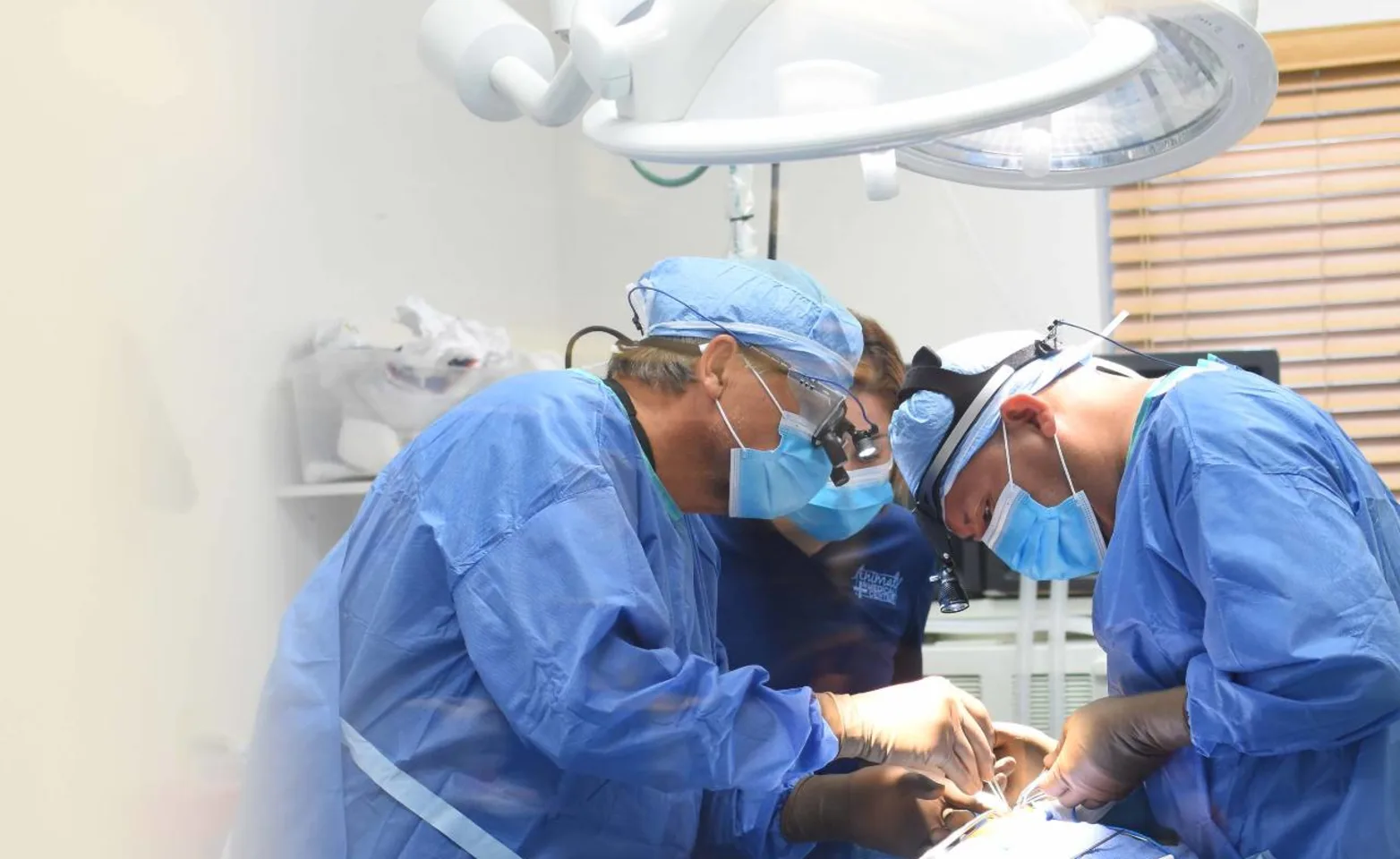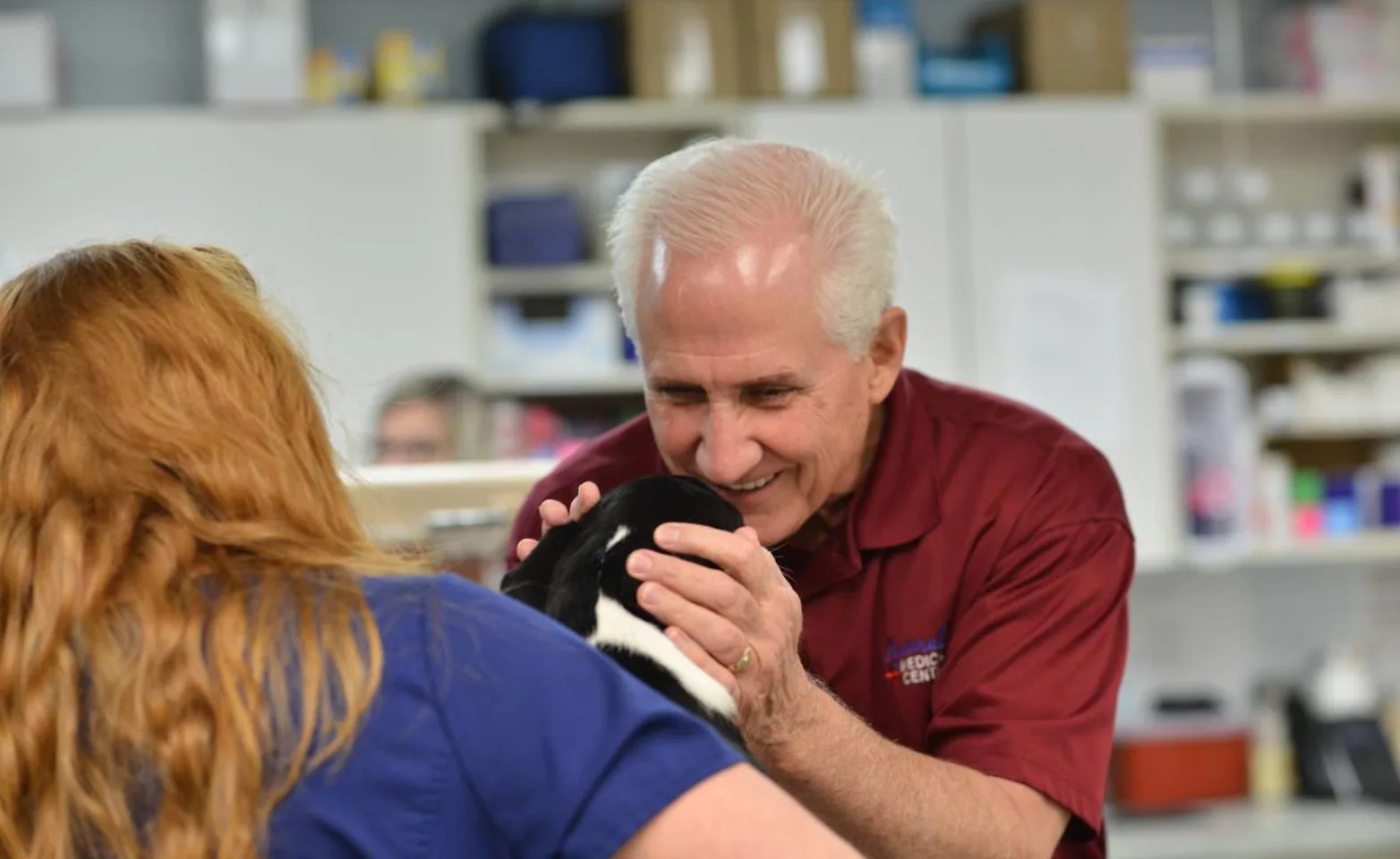Animal Medical Center of Hattiesburg

Overview
Cardiology is the branch of medicine dealing with disorders of the heart as well as part of the circulatory system. What causes, symptoms, diagnosis, and treatments exist for heart problems in different animals can vary widely.
Why should I consider a cardiology work-up for my pet?
Cardiology is the branch of medicine that specializes in the heart as well as part of the circulatory system. This is especially important because if your pet is born with a congenital heart disease, it can lead to heart failure. Heart failure is also more common in older pets. Whether you pet is born with a congenital heart defect or is just getting older, they can both lead to heart failure. The best way to prevent heart failure is through catching the problem early.
When should I consider cardiology work-up for my pet?
The symptoms of heart disease vary widely, and in some animals don’t show at all. The common symptoms of heart diseases include: coughing, difficulty breathing, loss of appetite, weight loss, behavior changes, and rear limb weakness. If your pet is experiencing any of these symptoms, then it could mean their heart is working inadequately and could potentially lead to heart failure.
How is my pet cared for during cardiology care?
Checking for heart disease is routine at every checkup for your pet. Management of a heart disease will depend on the severity. If the disease is asymptomatic (meaning it doesn’t produce or show symptoms) they may not need treatment, but the animal will need to be monitored. For animals that develop symptomatic heart failure, a combination of medications can be used to increase the life expectancy from months to years.
The most effective way to protect your pet as a pet owner is to visit your veterinarian regularly and catch any problems early. The sooner we can intervene, the better the chance we can give your pet a longer and healthier life.

EKG
Overview
Electrocardiography, also referred to as EKG, is a diagnostic tool used to measure the electrical activity of the heart. The recorded measurements are then reviewed by a cardiologist to screen for or monitor any heart conditions.
Why would my pet need electrocardiography?
If your pet is having heart-related health issues, diagnostic tools such as an EKG or Echocardiogram can be used to help diagnose the problem and provide direction to your doctor as to treatment options.
When would my pet need electrocardiography?
Our doctors may recommend an EKG if they hear that your pet has a heart murmur during an exam, if we are planning to schedule anesthesia for your senior pet, or if they are experiencing any symptoms of heart-related conditions. If your pet is experiencing symptoms such as lethargy, fainting, shortness of breath, or other irregular behaviors, contact us immediately as those could be indications of heart disease.
How does electrocardiography work?
Veterinarians use EKG testing and echocardiograms to evaluate your pet's heart. They are both noninvasive, safe with no risk of exposure to radiation, and only take a few minutes. They’re performed typically with the pet lying down on a padded table.
The EKG is an effective tool that measures the electrical efficiency of the heart. It’s commonly used to evaluate the heart rhythm, identify abnormalities in the heartbeat, and potential damage to the heart muscle and tissue. An echocardiogram uses ultrasound technology, or high-frequency sound waves, produced by a transducer and directed towards the chest. These two exams used together can greatly increase the accuracy of diagnosis of many heart conditions for your dog or cat.
